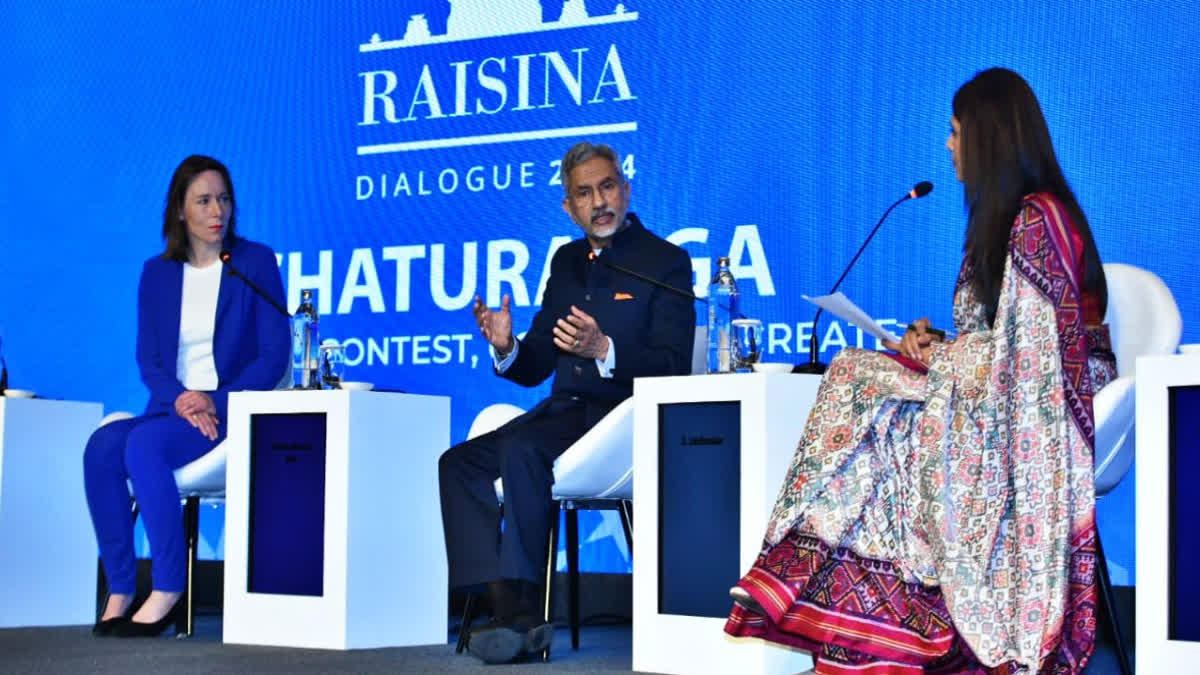New Delhi: External Affairs Minister S Jaishankar on Thursday called for the need to reform the UN Security Council noting, 'In the last five years, for all the big issues, we have not been able to find a multilateral solution. So the lack of results demonstrates the case for reform'.
Speaking at a session in the 9th Raisina Dialogue titled, ‘A Tapestry of Truths: Can the Two Hemispheres Agree?' Jaishankar said, "When the United Nations was invented, it had approximately 50 members and now it has approximately four times more members. So it’s a common sense proposition that you can’t continue the same way…”
“If you look at the last five years, for all the big issues, we have not been able to find a multilateral solution. So the lack of results demonstrates the case for reform. In many cases, the rules have been gamed. We speak about globalization. The fact is that the world trading rules have been gamed. And a lot of our challenges today also emanate from how countries have used that for their benefit at the expense of the international system,” he said.
He pointed out that in addition to the old issues, there are also new issues in the UN. “The big debates of the day, connectivity, debt, trade, and how these are leveraged today, are not necessarily all coming out of the West. So the West, as the dominant force earlier, is largely responsible for where we are today. The new players haven’t helped”, said Jaishankar.
“The West is largely responsible for where we are today but it is also true that the biggest opposer of the UN Security Council reform is not the Western country...I think the reality is we will have to battle bit by bit to create groups that will push for change”, he added.
The External Affairs Minister called India a bridging power and said people see the country as relatively unbiased. In a post on X, the EAM said, “Spoke about the need to radically reform the multilateral system in the Raisina Dialogue Panel today. Equally important is that global rules are not gamed for unilateral benefits. India has shown that values, interests, and sentiments can all contribute to common good".
There are five permanent members in the UNSC with veto powers — China, France, Russia, the UK, and the US. The remaining 10 in the council are non-permanent members who enjoy rotational two-year terms.
Read More



